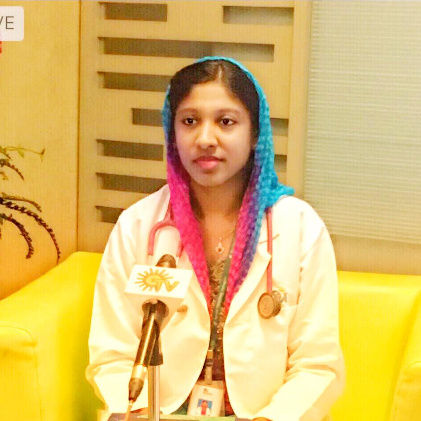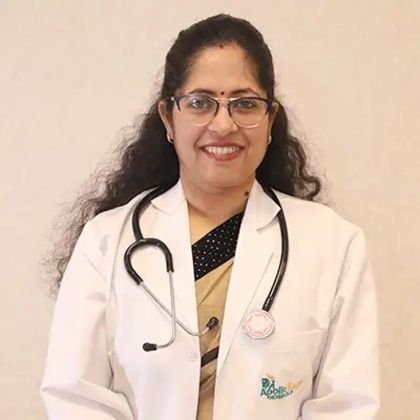Crohn's Disease Overview and Treatment Options
Learn about Crohn’s disease, its symptoms, causes, diagnosis, and treatment options. Discover lifestyle tips, medications, and when to see a doctor for effective management.

Written by Dr. J T Hema Pratima
Reviewed by Dr. Rohinipriyanka Pondugula MBBS
Last updated on 13th Jan, 2026

Living with digestive issues can be challenging, especially when they persist and affect your daily life. If you or a loved one has been diagnosed with Crohn’s disease, you may have questions about what it means, how it affects your body, and what treatment options are available. This article aims to provide a clear and compassionate guide to understanding Crohn’s disease and managing it effectively.
What is Crohn’s Disease?
Crohn’s disease is a type of inflammatory bowel disease (IBD) that causes chronic inflammation in the digestive tract. Unlike ulcerative colitis (another form of IBD), which affects only the colon, Crohn’s can impact any part of the digestive system—from the mouth to the anus. However, it most commonly affects the small intestine and the beginning of the large intestine (colon).
This condition is chronic, meaning it lasts a long time, often with periods of flare-ups (when symptoms worsen) and remission (when symptoms improve or disappear). While there is no cure for Crohn’s disease, proper treatment and lifestyle changes can help manage symptoms and improve quality of life.
Common Symptoms of Crohn’s Disease
Symptoms of Crohn’s disease vary from person to person, depending on which part of the digestive tract is affected. Some common signs include:
- Persistent diarrhea (sometimes with blood or mucus)
- Abdominal pain and cramping (often worse after eating)
- Unintended weight loss (due to poor nutrient absorption)
- Fatigue and low energy
- Loss of appetite
- Fever (during flare-ups)
- Mouth sores
- Joint pain or swelling (in some cases)
In severe cases, Crohn’s can lead to complications like intestinal blockages, ulcers, fistulas (abnormal connections between organs), and malnutrition.
What Causes Crohn’s Disease?
The exact cause of Crohn’s disease is still unknown, but research suggests a combination of factors may contribute:
1. Immune System Dysfunction – The immune system mistakenly attacks healthy digestive tract cells, causing inflammation.
2. Genetics – Having a family member with Crohn’s increases your risk.
3. Environmental Factors – Smoking, diet, stress, and certain infections may trigger or worsen symptoms.
4. Gut Microbiome Imbalance – Changes in gut bacteria may play a role in inflammation.
While you can’t control genetics, lifestyle changes can help manage symptoms and reduce flare-ups.
Consult a Specialist for Personalised Advice
Diagnosing Crohn’s Disease
If you experience persistent digestive symptoms, your doctor may recommend tests such as:
- Blood tests (to check for anemia or infection)
- Stool tests (to rule out infections or detect inflammation)
- Colonoscopy or endoscopy (to examine the digestive tract)
- Imaging tests (CT/MRI scans) (to see inflammation in deeper tissues)
- Early diagnosis is crucial to prevent complications and start effective treatment.
Treatment Options for Crohn’s Disease
While there’s no cure, several treatments can help control inflammation, relieve symptoms, and prevent complications. Your doctor will tailor a plan based on the severity of your condition.
1. Medications
- Anti-inflammatory drugs (like aminosalicylates) reduce gut inflammation.
- Corticosteroids (such as prednisone) help during flare-ups but are not for long-term use.
- Immunosuppressants (like azathioprine) calm the overactive immune system.
- Biologic therapies (such as infliximab) target specific proteins causing inflammation.
- Antibiotics (for infections or fistulas).
2. Dietary and Lifestyle Changes
- Eat small, frequent meals to ease digestion.
- Avoid trigger foods (spicy, greasy, high-fiber, or dairy if intolerant).
- Stay hydrated to prevent dehydration from diarrhea.
- Manage stress with yoga, meditation, or therapy (stress can worsen symptoms).
- Quit smoking, as it increases flare-ups.
3. Surgery (in Severe Cases)
If medications don’t help, surgery may be needed to remove damaged parts of the intestine or repair complications like fistulas.
When to See a Doctor?
If you experience:
- Persistent diarrhea or abdominal pain
- Unexplained weight loss
- Blood in stool
- Extreme fatigue
- Consult a gastroenterologist for proper evaluation. Early treatment can prevent complications.
How Apollo24|7 Can Help
If you suspect Crohn’s disease or need expert care, Apollo24|7 offers:
- Online consultations with gastroenterologists
- Diagnostic tests (blood work, stool tests, imaging)
- Personalized treatment plans
- You can book an appointment or lab test easily through the Apollo24|7 app or website.
Final Thoughts
Living with Crohn’s disease can be tough, but with the right treatment and lifestyle adjustments, many people lead active, fulfilling lives. If you’re struggling with symptoms, don’t hesitate to seek medical advice. Early intervention can make a big difference in managing this condition effectively.
Would you like to schedule a consultation or learn more about managing Crohn’s disease? Visit Apollo24|7 today!
Get Your Health Assessed
Consult a Specialist for Personalised Advice

Dr. Rajib Ghose
General Physician/ Internal Medicine Specialist
25 Years • MBBS
East Midnapore
VIVEKANANDA SEBA SADAN, East Midnapore

Dr. Promise Jain
General Physician/ Internal Medicine Specialist
20 Years • MBBS, DNB Medicine, TDD, MNAMS, PGCDM, CCEBDM, CCMTD,PGDE Senior Consultant- Internal Medicine Head- Department of critical care Apollo Sage Hospital, Bhopal, MP Intensivist, Diabetes, Thyroid , Physician
Bhopal
Apollo Sage Hospitals, Bhopal

Dr. Anand Misra
General Physician/ Internal Medicine Specialist
14 Years • MBBS, DNB
Mumbai
Apollo Hospitals CBD Belapur, Mumbai

Dr. Afreen Banu Khan
General Physician/ Internal Medicine Specialist
12 Years • MBBS, DDM (Diab). FCC (Cardio)
Chennai
Apollo Speciality Hospitals OMR, Chennai

Dr. Neelam Jain
General Physician/ Internal Medicine Specialist
16 Years • "MBBS, DPB ( Dip in pathology and bacteriology)-Mumbai CCEBDM, PGCDM, CCMTD"
Bhopal
Apollo Sage Hospitals, Bhopal